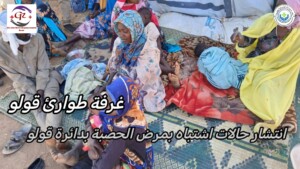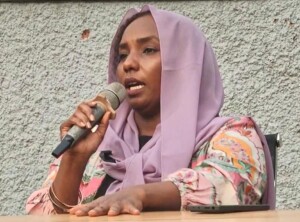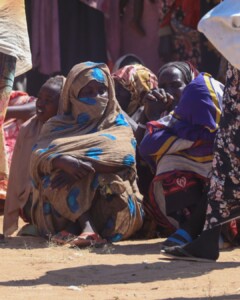Medics: Chikungunya infections on the rise in Port Sudan
Health sources have pointed to a rise of rates of chikungunya fever infections in eastern districts of Port Sudan in Red Sea state.
 Aedes aegypti, the principal mosquito vector of Chikungunya and Dengue viruses (Photo: vectorbase.org)
Aedes aegypti, the principal mosquito vector of Chikungunya and Dengue viruses (Photo: vectorbase.org)
Health sources have pointed to a rise of rates of chikungunya fever infections in eastern districts of Port Sudan in Red Sea state.
Sourced within the health sector in Post Sudan told Radio Dabanga that on average, new infections in the eastern districts exceed 70 cases a day.
Journalist Amin Sinada told Radio Dabanga that the incidence of chikungunya fever has increased due to standing water left after floods and rains, which has led to the increase of mosquito breeding.
He called on the competent authorities to exert more sanitation efforts.
Sudan’s federal Ministry of Health announced that are 10 million people in the country who live without proper or any sanitation and are forced to use the open with no toilet available. The Ministry has acknowledged “the emergence of health problems as a result of the habit”.
Poor sanitation, health risk
Poor sanitation and contamination of drinking water are blamed for the spread of diseases such as cholera and chikungunya, which have become endemic in parts of the country.
In October, the Sudan Call, a coalition of opposition parties and armed movements, submitted a memorandum to the director-general of the World Health Organization (WHO) drawing attention to “the terrible collapse in the health sector, the spread of epidemics in Sudan such as cholera, and its transformation into an endemic disease amid government misinformation”.
The outbreak of chikungunya fever, popularly known as kankasha, began in August after heavy rains hit Sudan’s eastern Kassala state and El Gash river flooded large pieces of land. In October, health sources told Radio Dabanga that the number of patients admitted to health centres and private clinics in the eastern Sudanese state was increasing. Government officials reported that at least 13,400 people in Kassala are infected with the mosquito-borne disease.
The World Health Organization (WHO) has confirmed in a report that laboratory tests of samples from the infected people in Sudan’s Kassala state show cases of dengue fever along with chikungunya.
Khartoum out of medicines
In Khartoum, the federal Minister of Health, Mohamed Abuzeid pointed out that government stores habe run-out of 34 types of life-saving medicines.
On Wednesday, the minister warned the parliament that nearly 27 other medicines would run out within a month.
He said that 33 companies have stopped dealing with medical supplies until the previous debt since the beginning of the year of €34 million be paid.
He pointed out that 97 items have been affected by the stop of companies.
The Parliament announced the formation of a committee to monitor and provide life-saving medicines.











 and then
and then